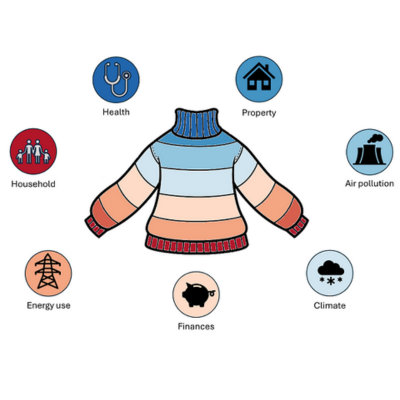UrbanTide, in partnership with North Lanarkshire Council and Snook, is delighted to have been shortlisted for the 2018 Digital Technology National Awards in the category of Transformation Innovation Through Data, sponsored by The Data Lab.

Now into their 8th year, The Digital Technology Awards reward innovation, expertise and ambition and are of great significance in the industry.
The team redesigned the business rates data service used by North Lanarkshire Council to undertake business rates fee collection. It is estimated that cost avoidance from FOIs alone could save £30,000, whilst identifying misreporting from companies may lead to potentially thousands of pounds that can be added to the Non Domestic Rates roll.
“The in-built processing pipelines in UrbanTide’s big data platform, USMART were used to undertake data matching and non-matching to identify ‘missed’ business rates and automatically de-personalise the data for open data publication. This could be, for example, by automatically processing business rate data against data openly available from other sources including Companies House, Food Standards Agency, Office of the Scottish Charities Regulator (OSCR), Google Business API, Yell etc.”
— Steven Revill (CEO of UrbanTide)
The publication of the full de-personalised business rates dataset as open data means that North Lanarkshire Council furthers its role as a true prosumer of open data, using existing open datasets to transform services through innovation and supporting the publication of higher quality open datasets.
“North Lanarkshire Council believes in data driven transformation. Harnessing open data in this way is another successful step towards realising the rewards that open data can bring, both to ourselves and to our citizens. It’s an exciting journey.”
— Peter Tolland, North Lanarkshire Council
As part of the project, sponsored by the Open Data Institute, the team has also produced a toolkit designed specifically to be of use to organisations looking to design data-led services but who recognise this is a complex process - where they must meet their legal requirements to safeguard personal or identifiable data, deal with source systems that make it difficult to extract, and prepare the data for publication.
“Building on the Scottish Government Open Data Resource Pack, we shared the approach taken during the project - in particular the tools and methods used - through a toolkit so that North Lanarkshire Council and others can replicate the work in other areas.”
— Anne Dhir, Snook
The important impact of the project, and the transformational innovation with data, has been the concept of viewing in-house data as a service and as a cost saving and potential revenue generating stream. Parties interested in business rates data includes property agents, charities, journalists, MPs in addition to other service areas within the local authority itself.
These processes will be able to be applied to other data within North Lanarkshire Council and to other local authorities. There are exciting times ahead as North Lanarkshire Council, and others, apply this service design and data thinking to other datasets.
About UrbanTide, Snook and North Lanarkshire Council
UrbanTide is on a mission to make data smart and build smart communities. Over the last four years they have experienced first-hand how challenging the reuse of data can be for many organisations. With clients across the UK and Ireland they support them on their data journey to unlock innovation.
Snook is a service design agency working with public, third and private sector organisations since 2009. Snook promotes that design provides organisations with a practical way of engaging all stakeholders and ‘doing’ innovation by using design methods to support organisations to co-design and co-produce new services.
North Lanarkshire Council (NLC) currently takes more than 700,000 calls per year to its contact centre and over 16 million calls per year to its back office. NLC is on a digital and cultural transformation journey “to improve economic opportunities and outcomes - for all”. Realising the value of data and establishing routine processes and procedures to reuse data is central to enabling this aim. There is a strong belief that NLC can “support those most in need and improve outcomes for all citizens through good data management and analysis”.







